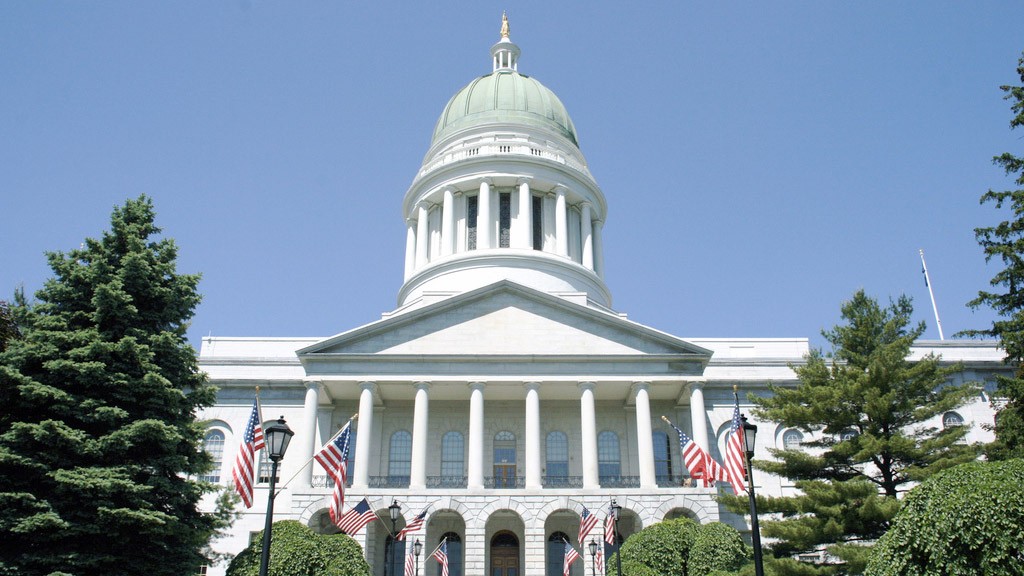Maine lawmakers have narrowly advanced a bill that would legalize sports betting in the state. The proposal would permit tribes to operate mobile sports betting while also authorizing harness racing tracks, off-track betting facilities and the Oxford Casino to conduct retail operations.
The bill was passed by the Judiciary Committee on an 8-6 vote on Wednesday, reports Central Maine. It is part of targeted tribal sovereignty reforms negotiated between Gov. Mills’ administration and the state’s four tribes.
Leaders for Maine tribal nations -the Passamaquoddy Tribe, the Penobscot Nation, the Houlton Band of Maliseets, and the Aroostook Band of Micmacs- have all shown support for the sports betting proposal. However, they do not see it as a substitute for a comprehensive sovereignty bill, which was narrowly endorsed by the same committee, on Tuesday, but is being opposed by Mills.
The sports gaming bill was initially met with criticism from Maine’s gambling interests, which requested similar access to the market, reports Portland Press Herald. In an effort to address these concerns, it was that the proposal passed in an amended version that would give non-tribal parties rights to in-person betting, while reserving exclusive rights to mobile wagering for tribes.
Janet Mills, Maine Gov.
This is not the first time sports betting legislation has been discussed in Maine, with the future odds of a passage still unclear. This time, Bill LD 585 seeks to gain support from tribal nations by granting them exclusivity over mobile operations and introducing amendments to the Maine Indian Claims Settlement Act of 1980.
While Gov. Mills has shown opposition to the comprehensive sovereignty bill, and opposed prior sports betting legislation attempts, she has, however, shown willingness to approve this particular sports betting proposal. It would also benefit tribes by removing state sales taxes from certain goods and services produced and consumed on tribal land, or giving the revenues from those taxes to tribes; while lifting state taxes on incomes earned on reservations.
Originally, the bill was only set to allow in-person betting at OTB facilities, but the tribes supported the inclusion of harness racing tracks, Oxford Casino and Hollywood Casino Bangor, which would be able to conduct sports wagering at Bangor Raceway, which it operates as a condition for its casino.
Hollywood Casino Bangor
A lobbyist for the casino urged lawmakers to allow the company to conduct sports betting at the Bangor casino instead of the racetrack, which was described as “unpractical,” but a majority of committee members rejected that argument, further reports Press Herald.
The proposal currently faces opposition from online sportsbooks, including heavyweight operators DraftKings, FanDuel and BetMGM. Jon Mandel of the Sports Betting Alliance -a coalition of gambling interests, including said operators- stated last month the group opposed the initiative because it would limit “the number of companies that can engage” in the Maine market.
The legislation is sponsored by assistant Democratic House leader Rachel Talbot Ross of Portland. Tribes see it as providing meaningful economic benefits to their people, communities and local surrounding communities while they continue efforts to regain sovereignty through L.D. 1626.
Oxford Casino
“This legislation recognizes that the way that Maine’s gaming industry has evolved has left out and discriminated against Native Americans,” Passamaquoddy tribal attorney Michael-Corey Francis Hinton said in February. “This legislation recognizes that inequity must be addressed.”
Additionally, supporters have hailed the bill as a step forward in tribal relations, by potentially unlocking economic development opportunities for tribes and improved collaboration between them and the state.
“This is a really solid, well-balanced legislation that from a policy perspective achieves what is one of my top priorities, which is supporting the Wabanaki nations in Maine and fostering significant economic growth and recognition of their importance to our state,” said Sen. Anne Carney, D-Cape Elizabeth.



